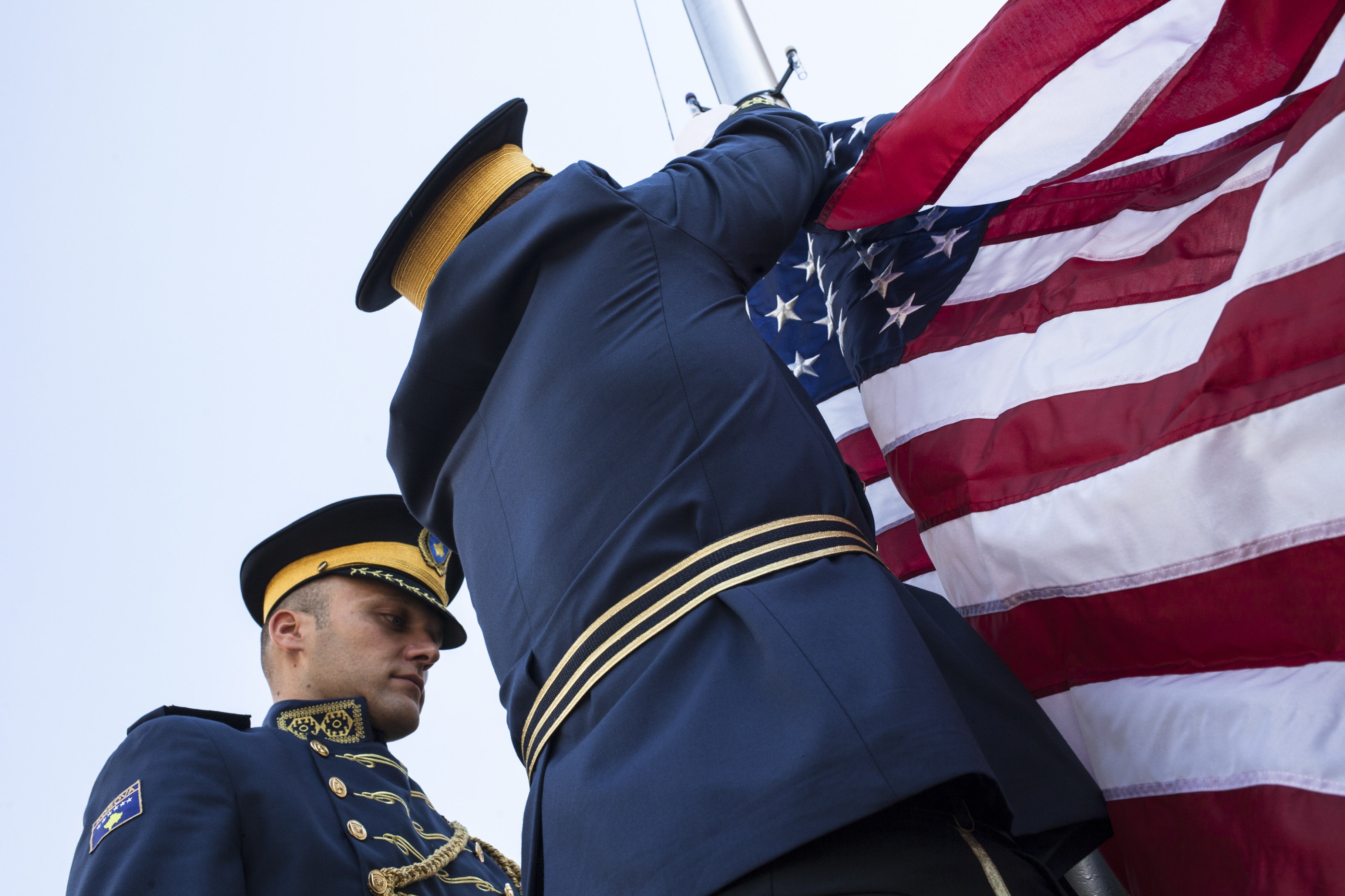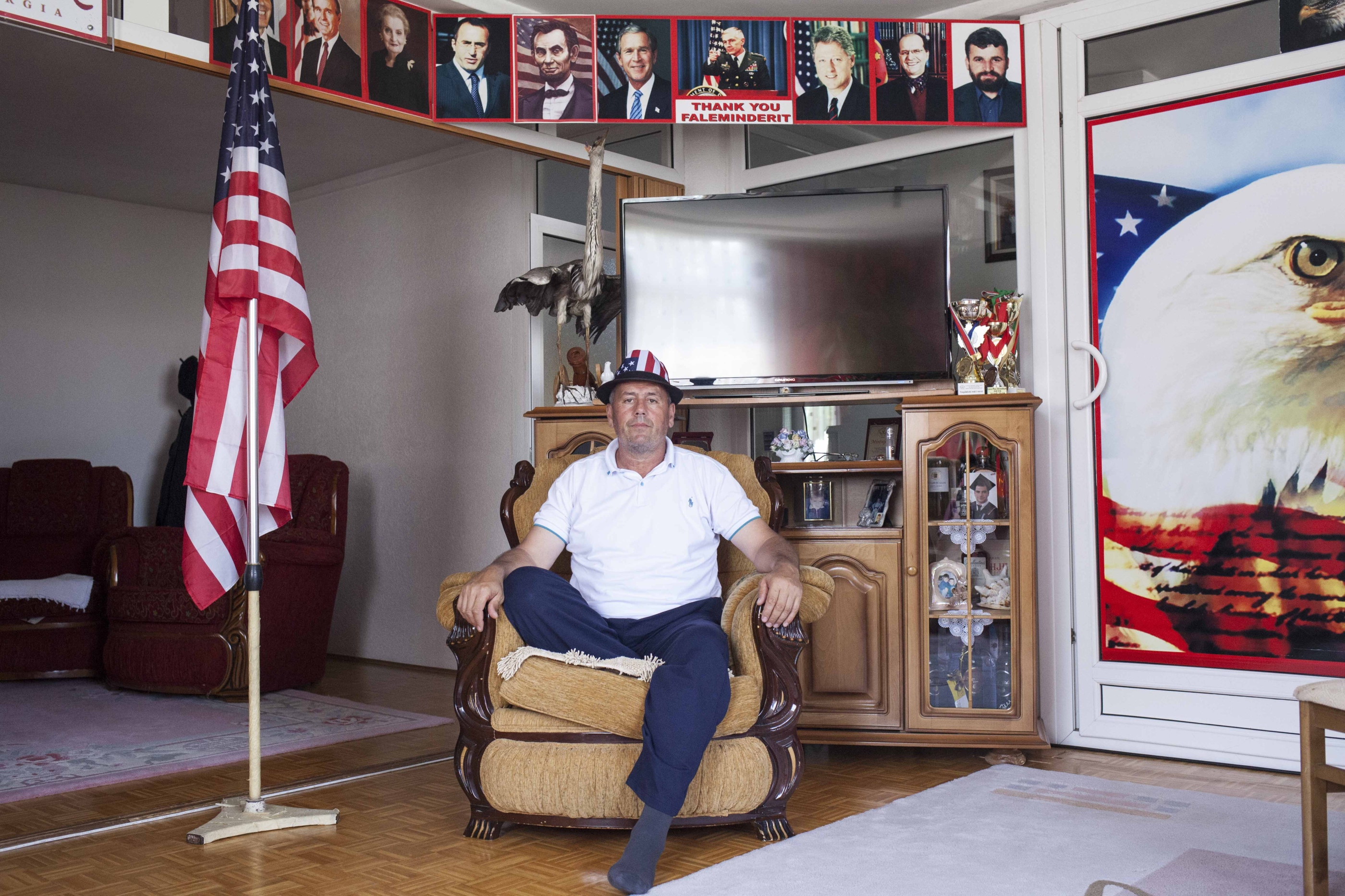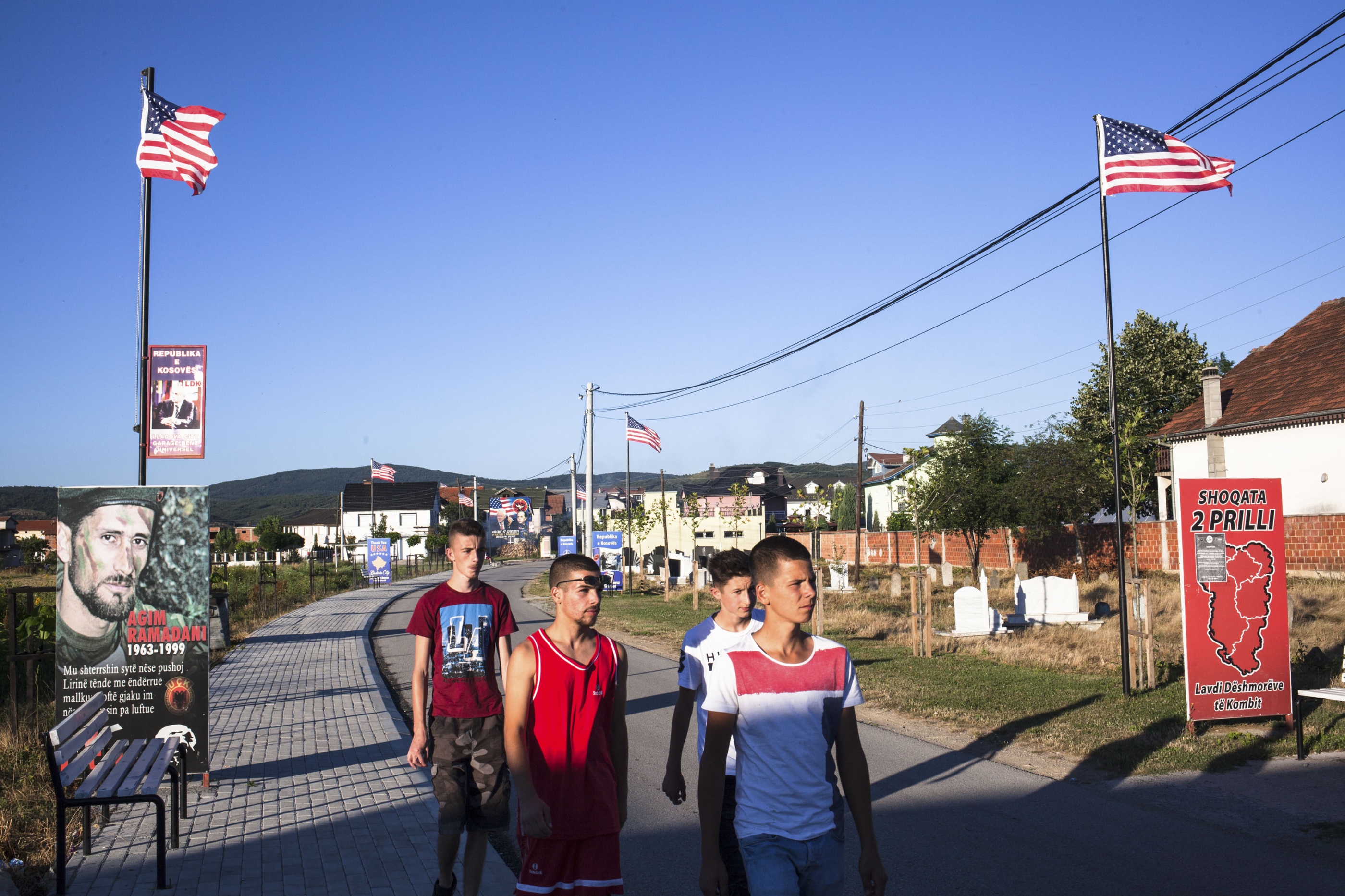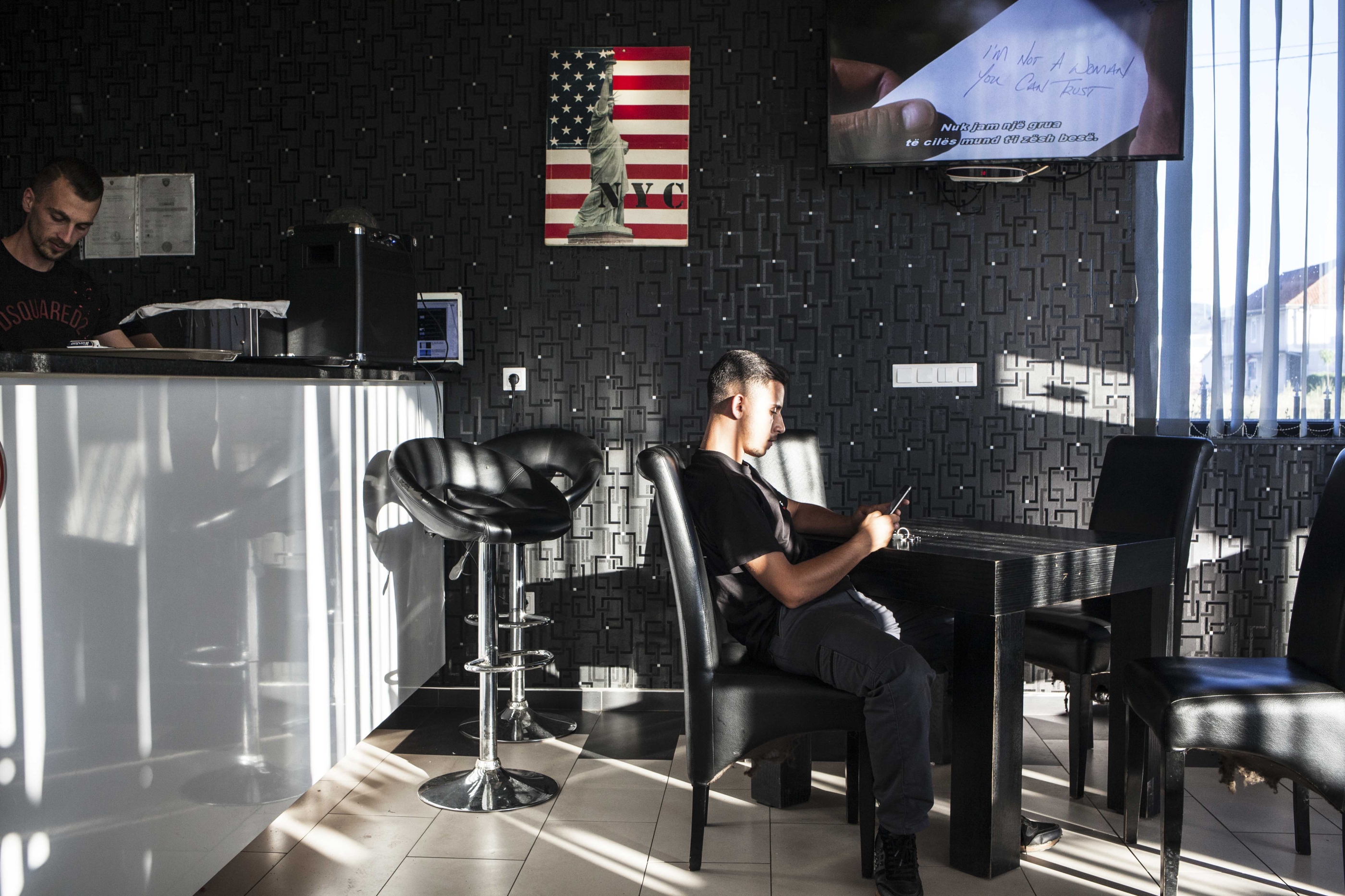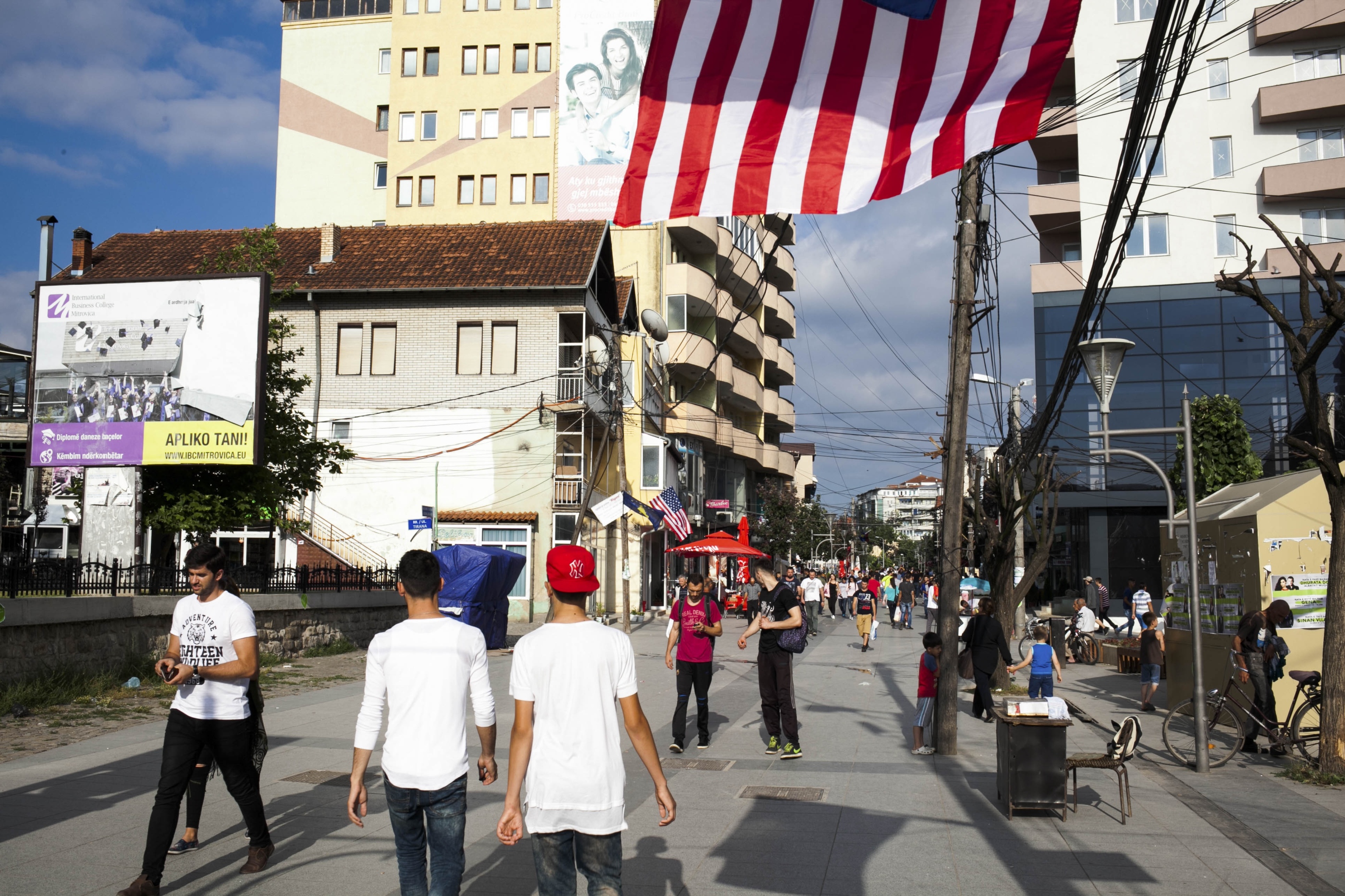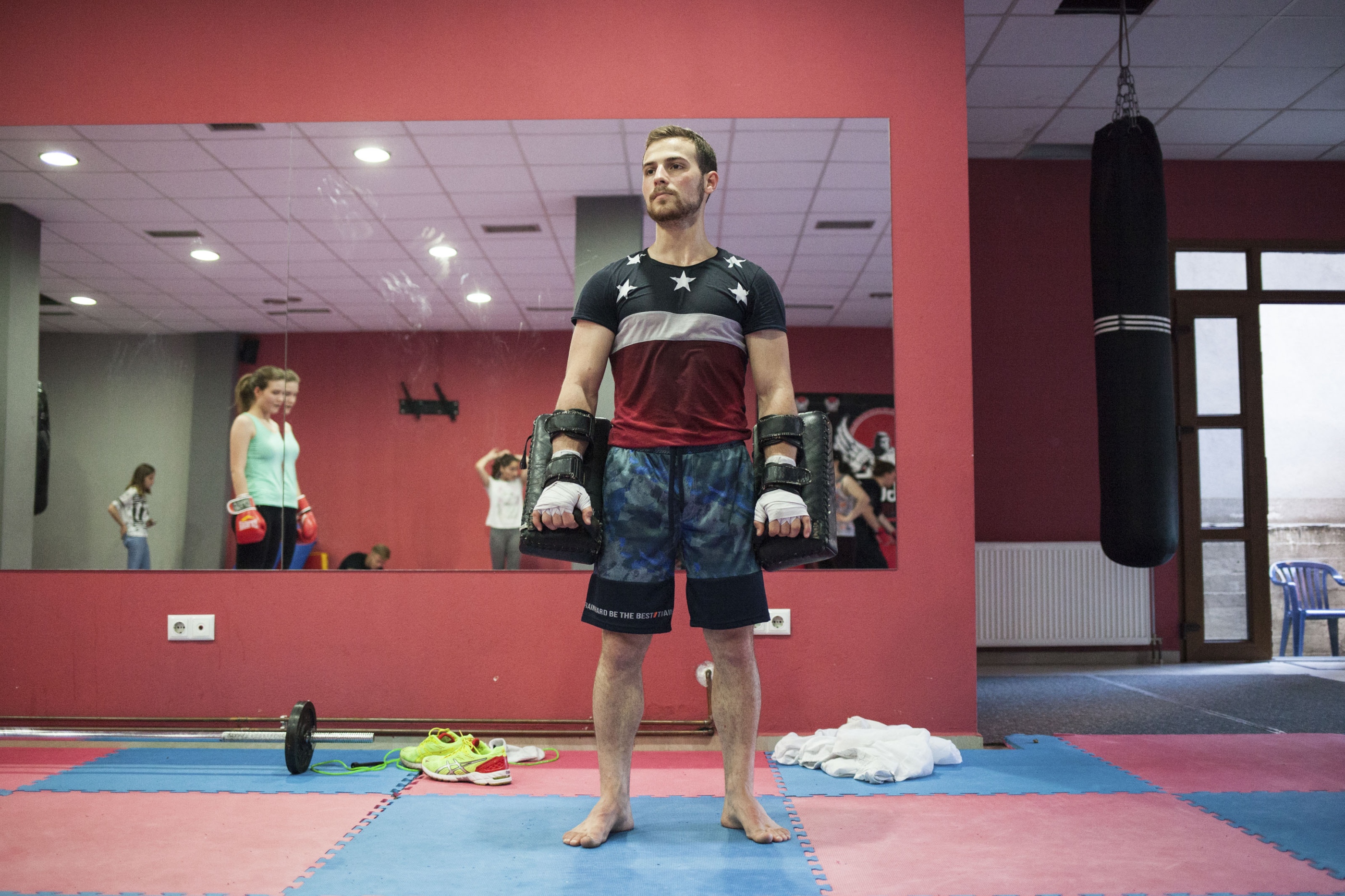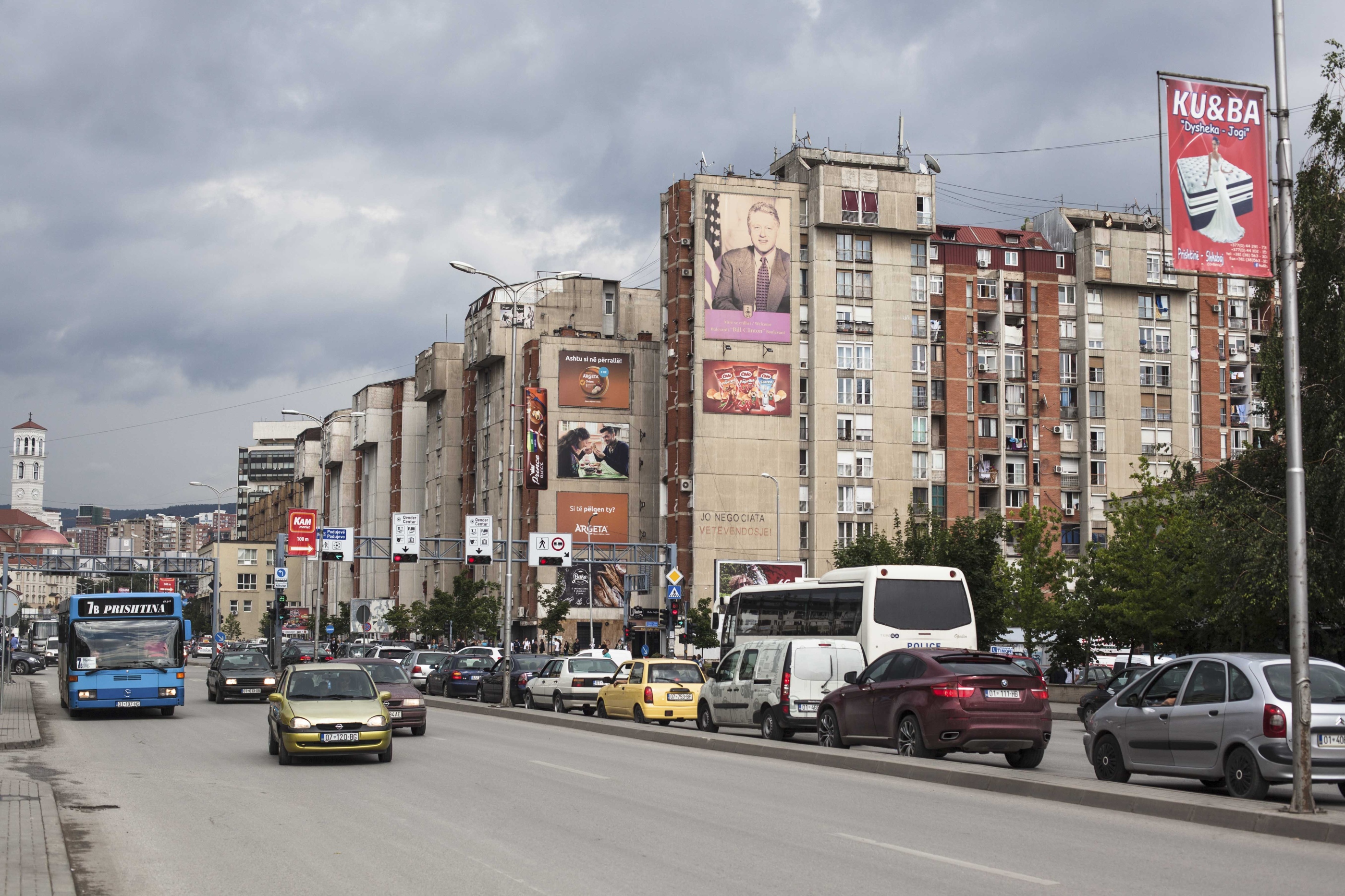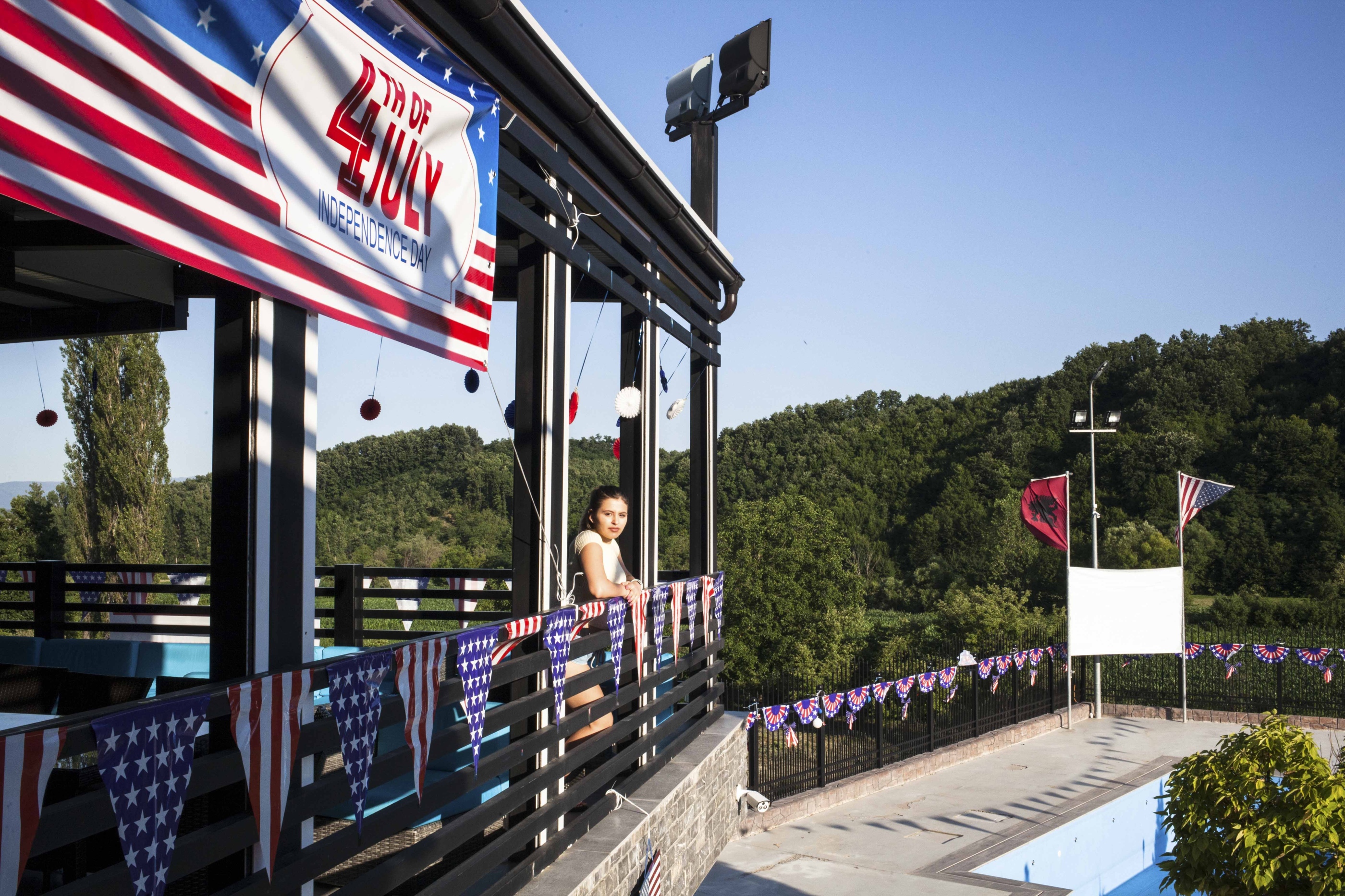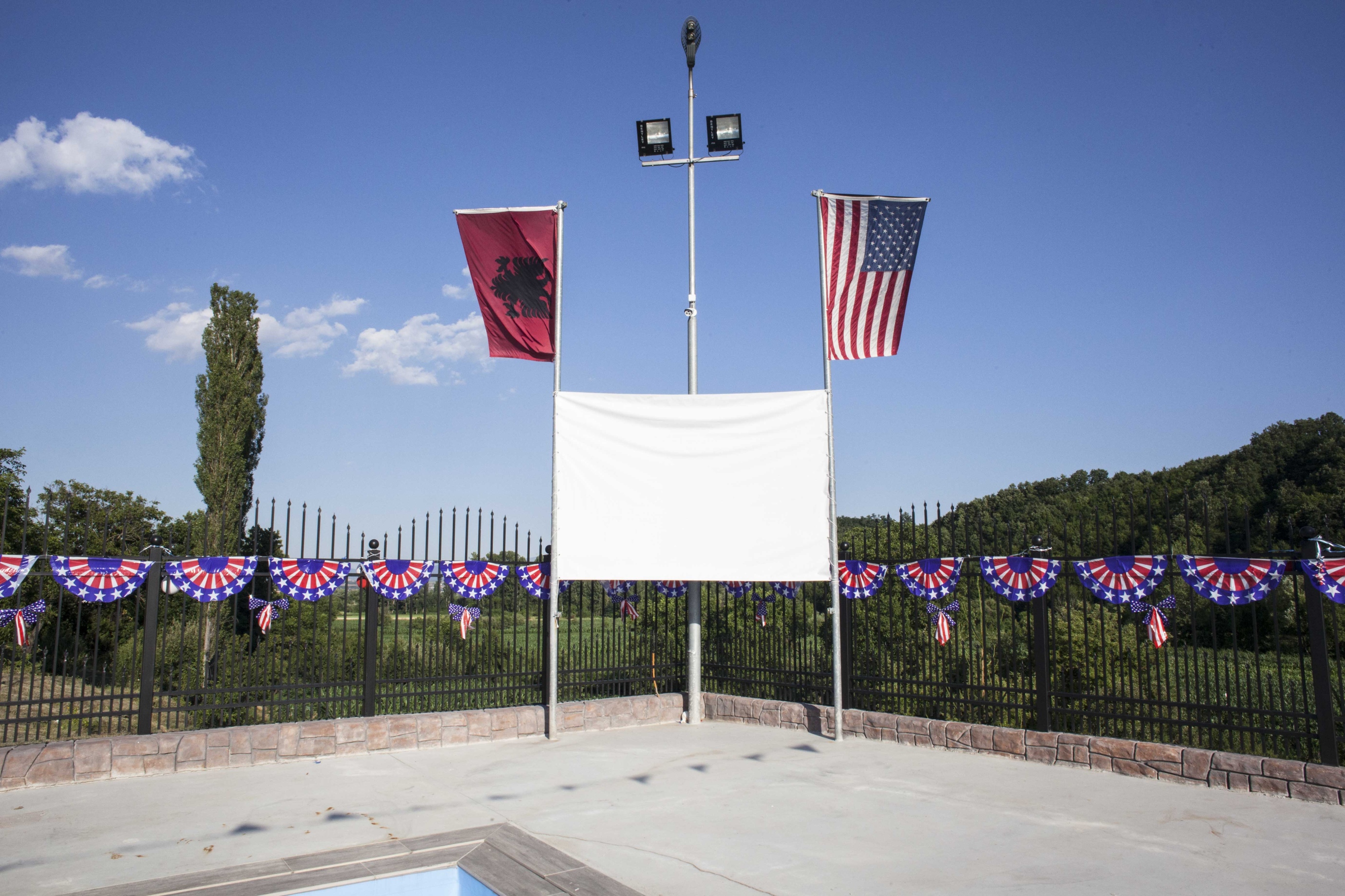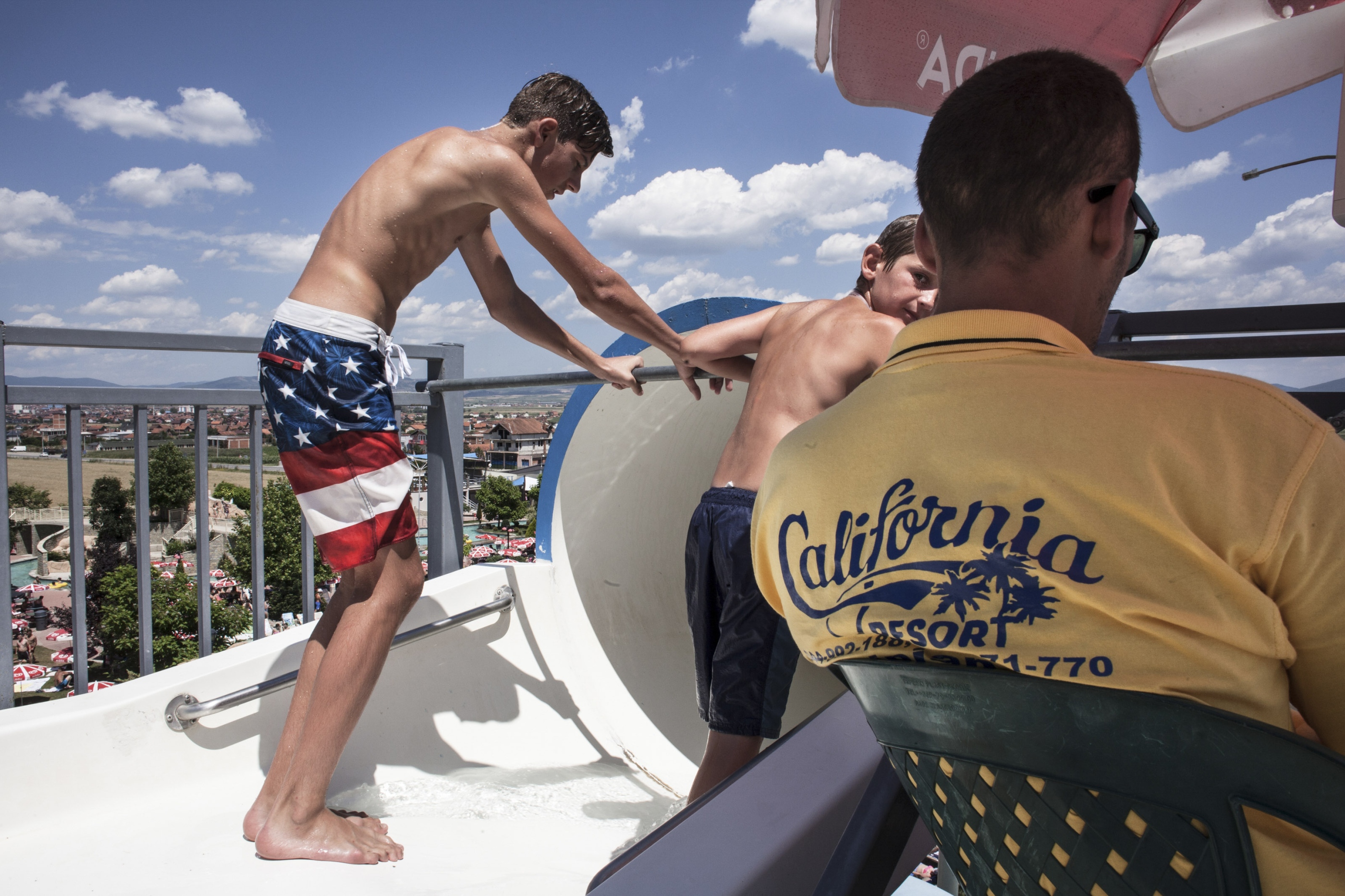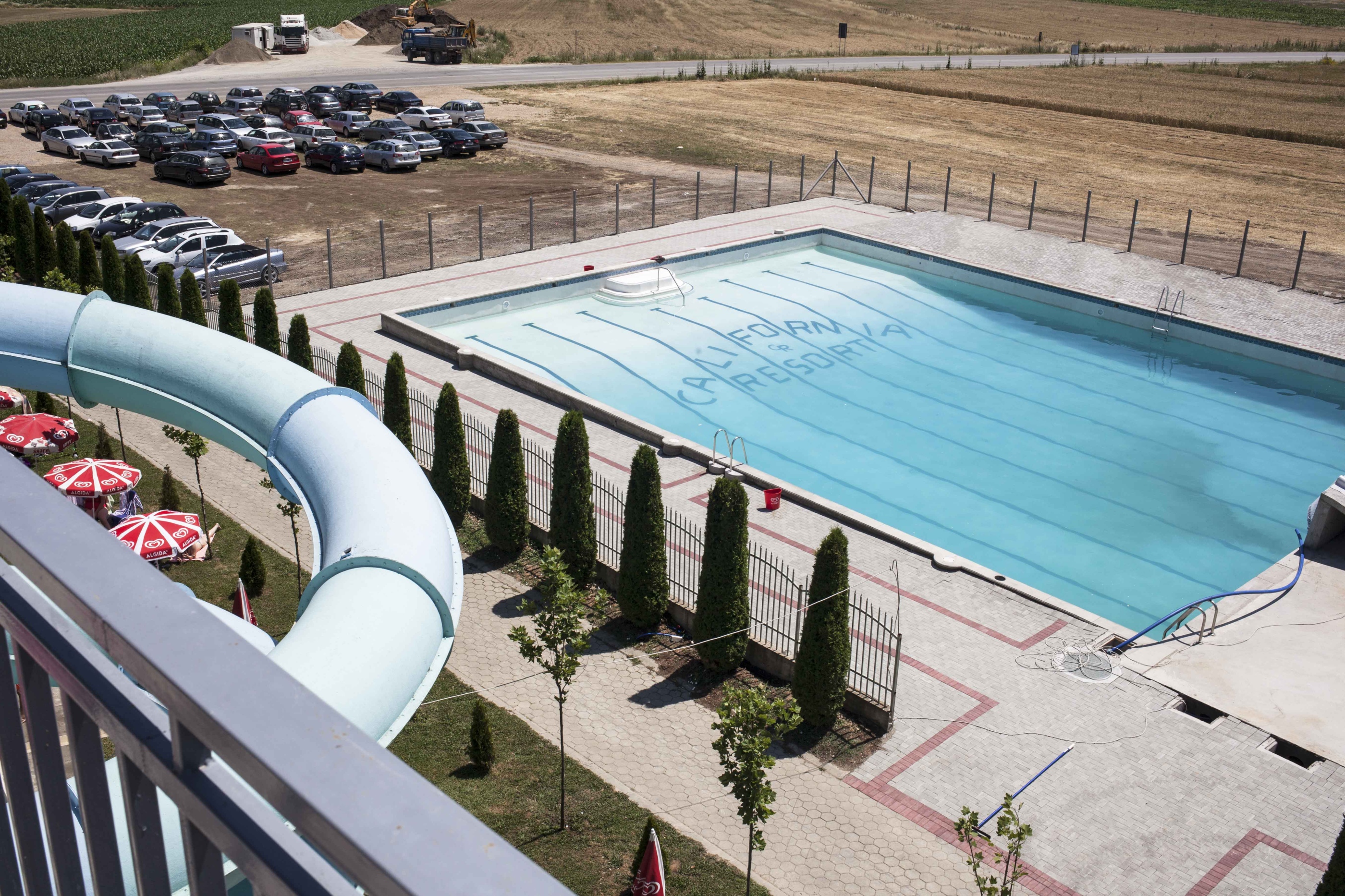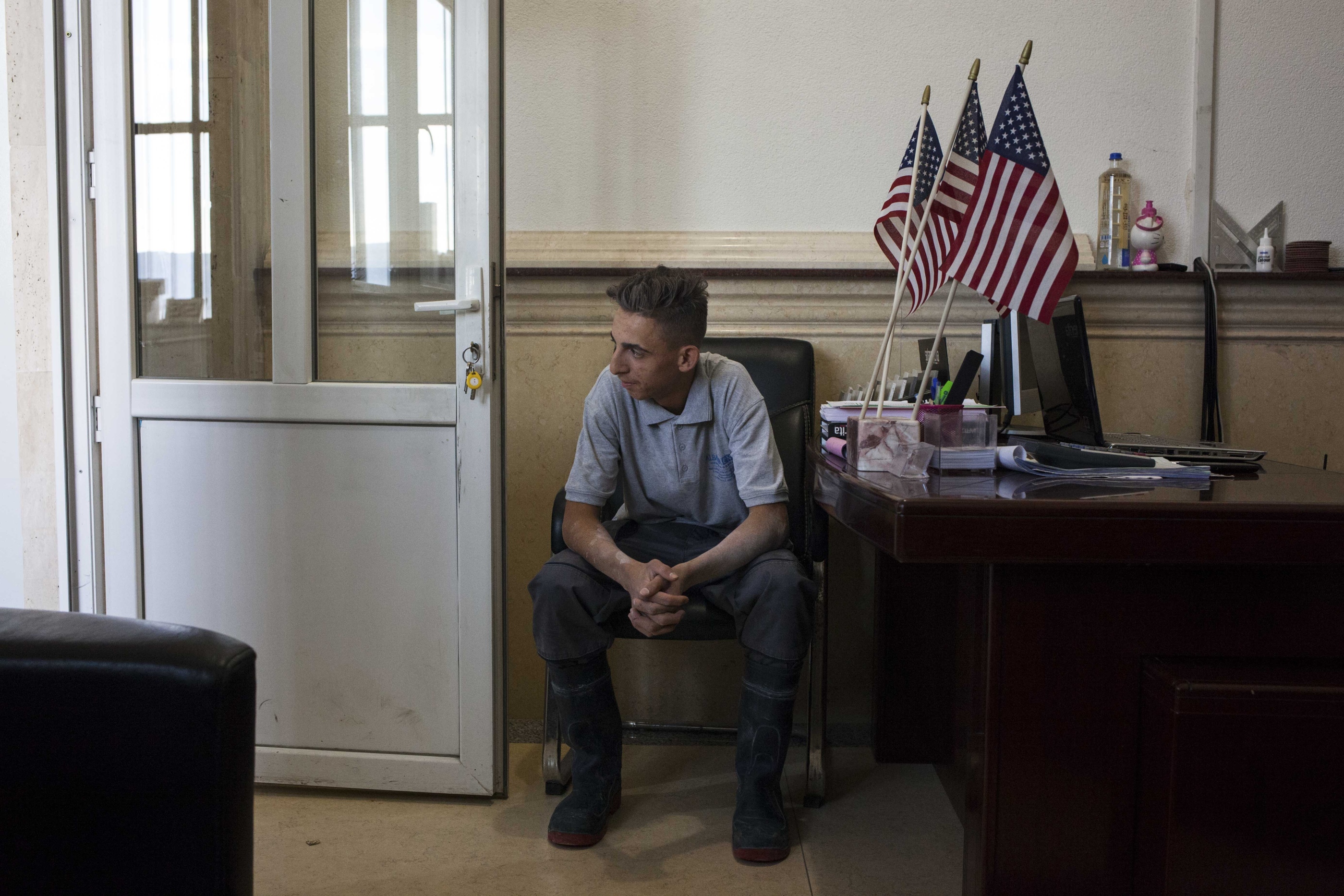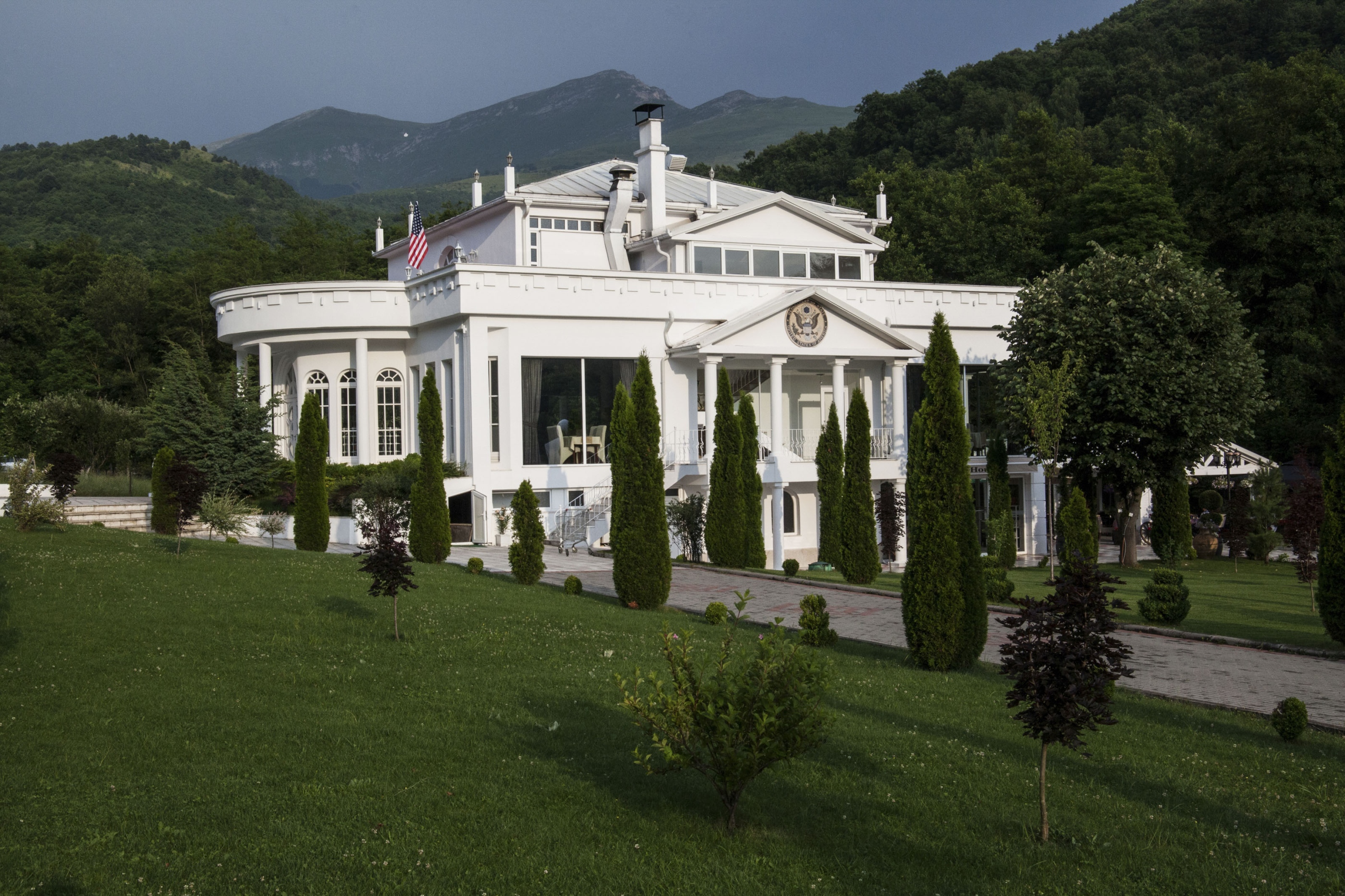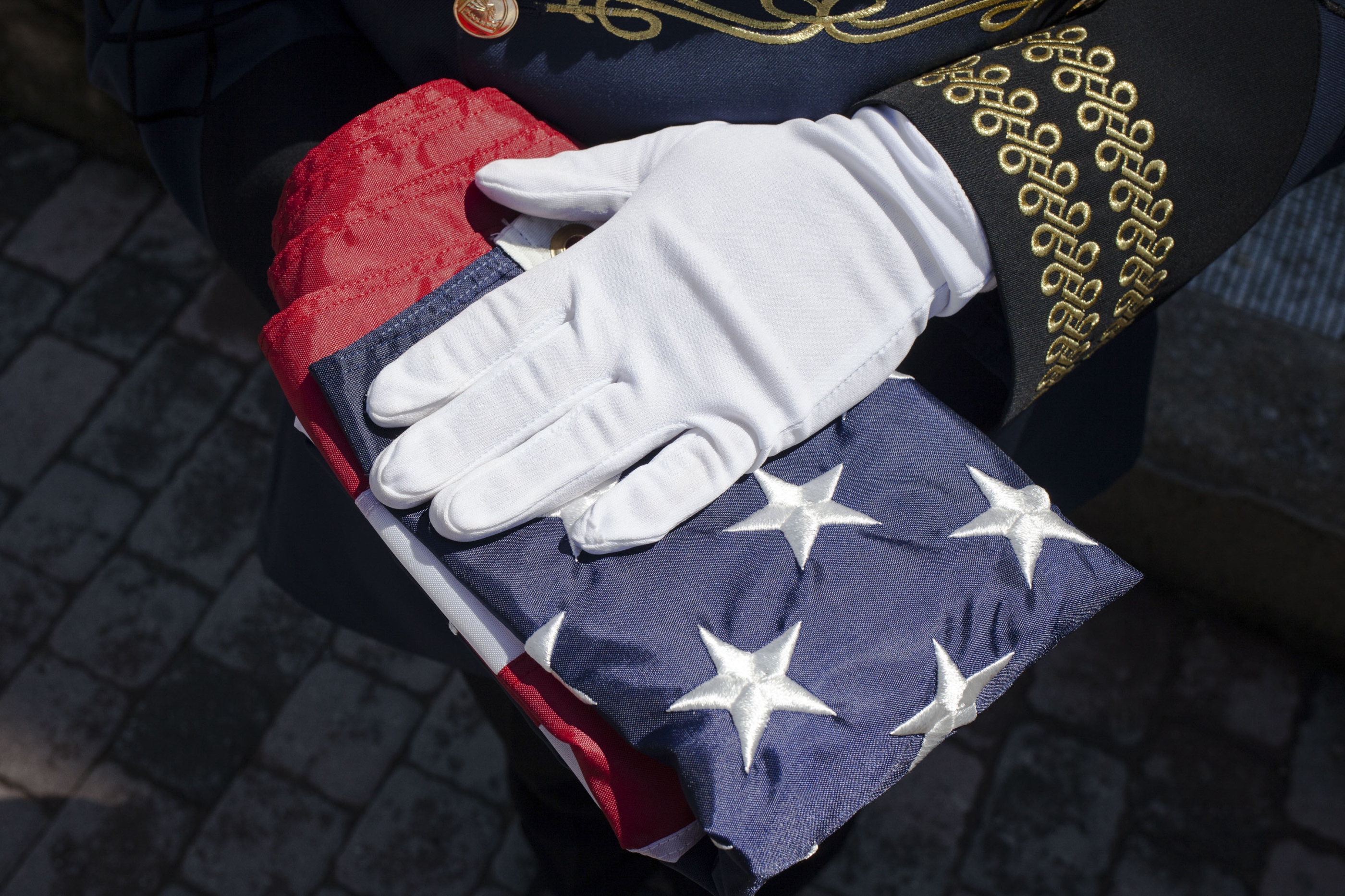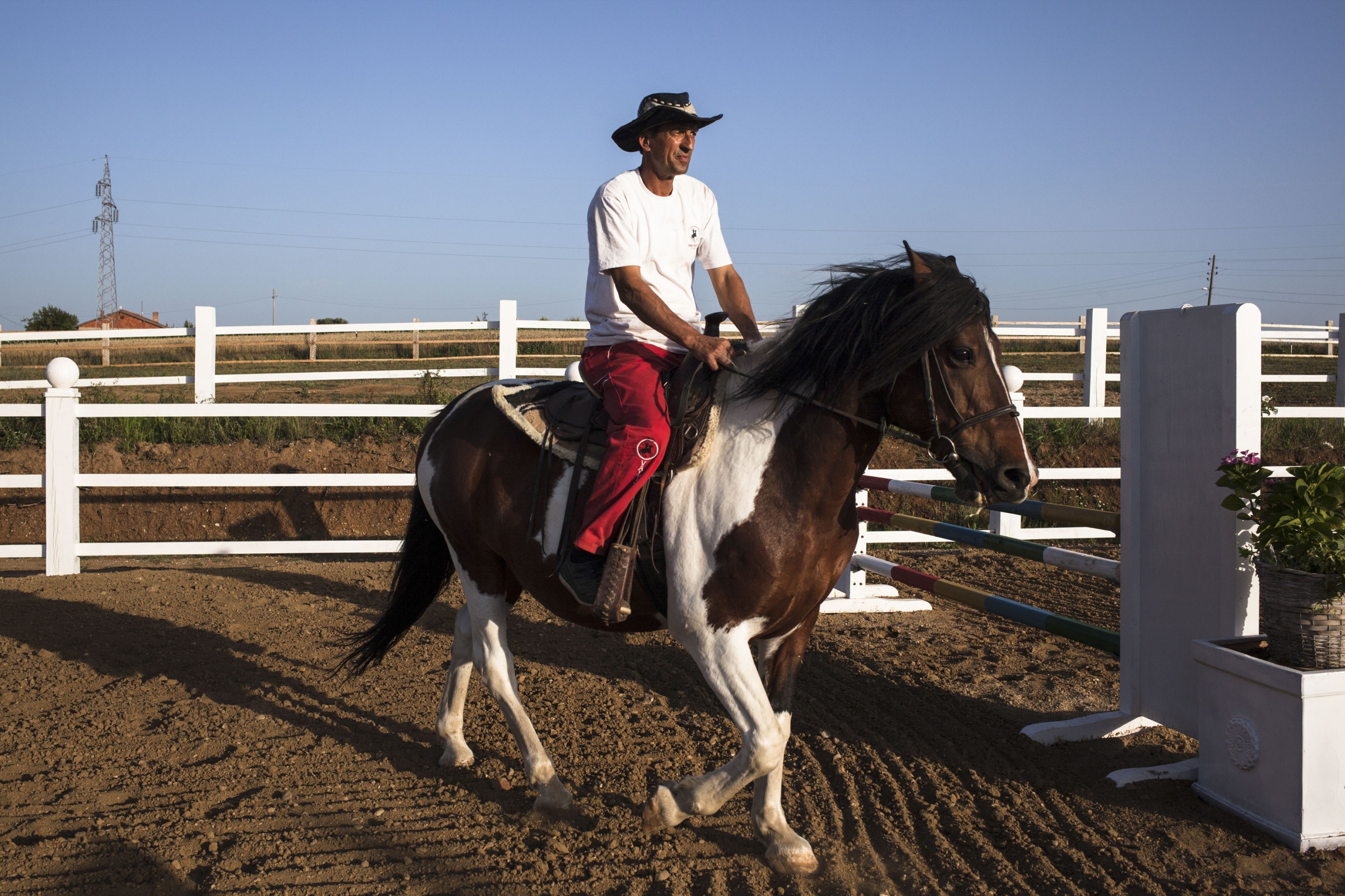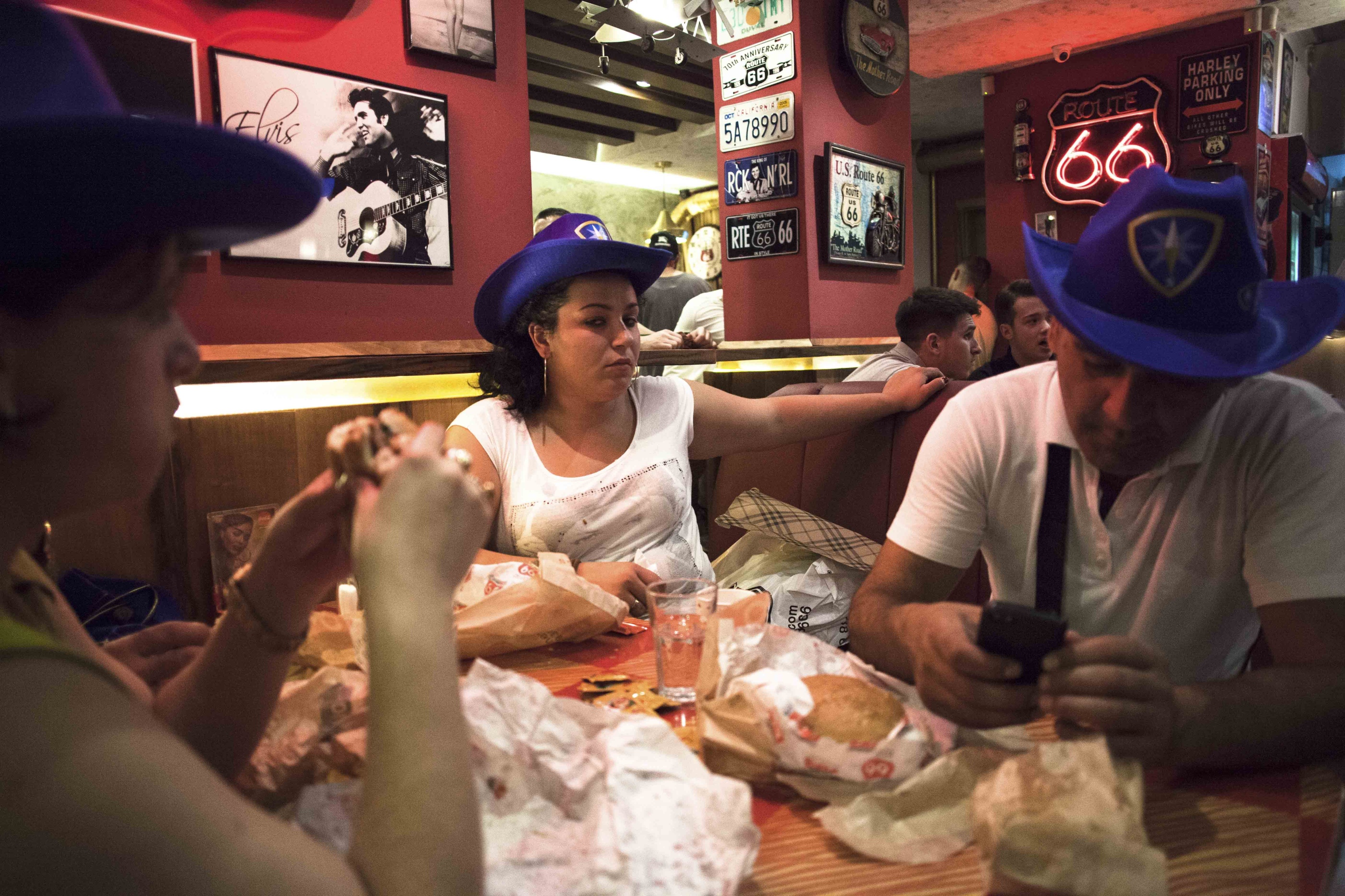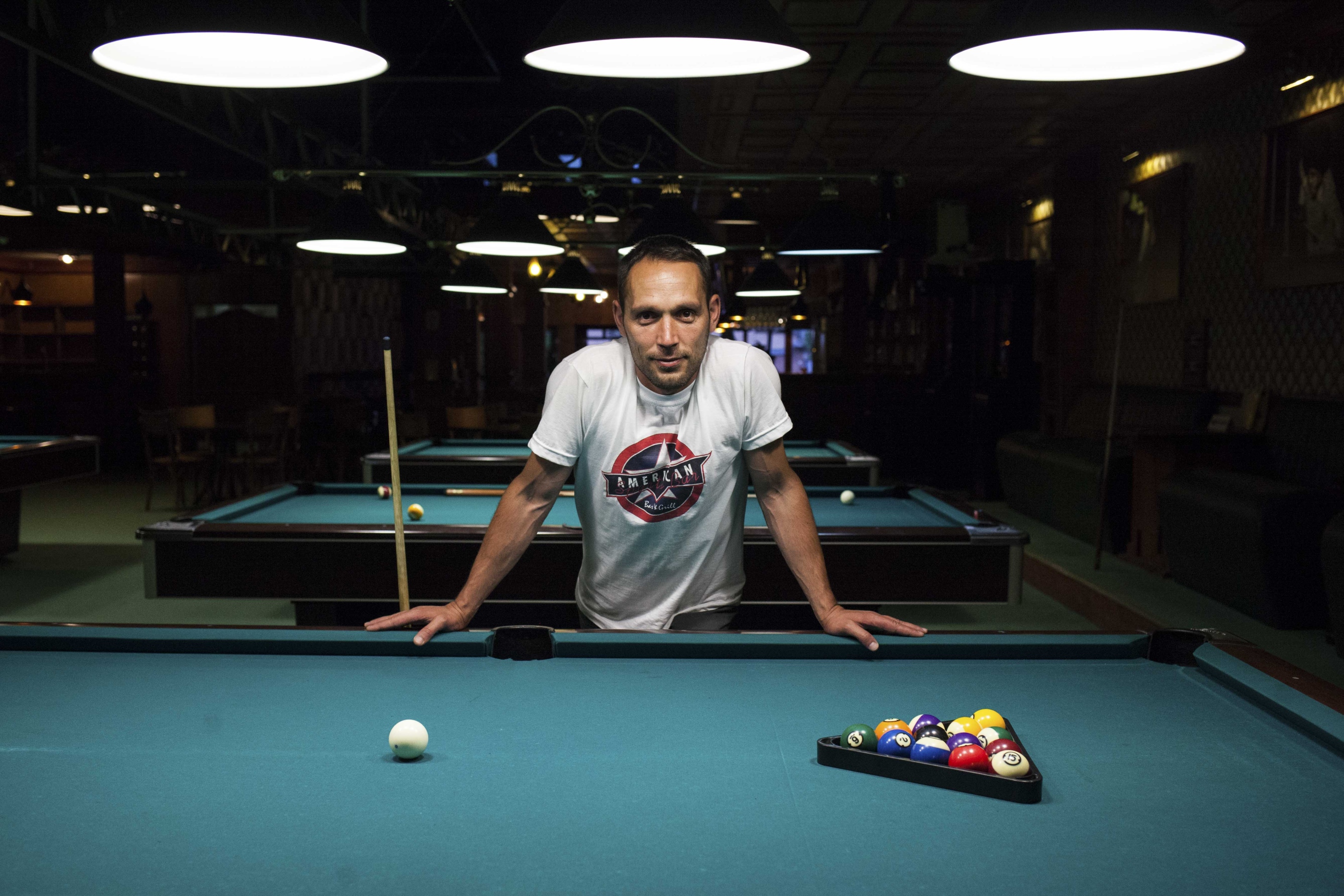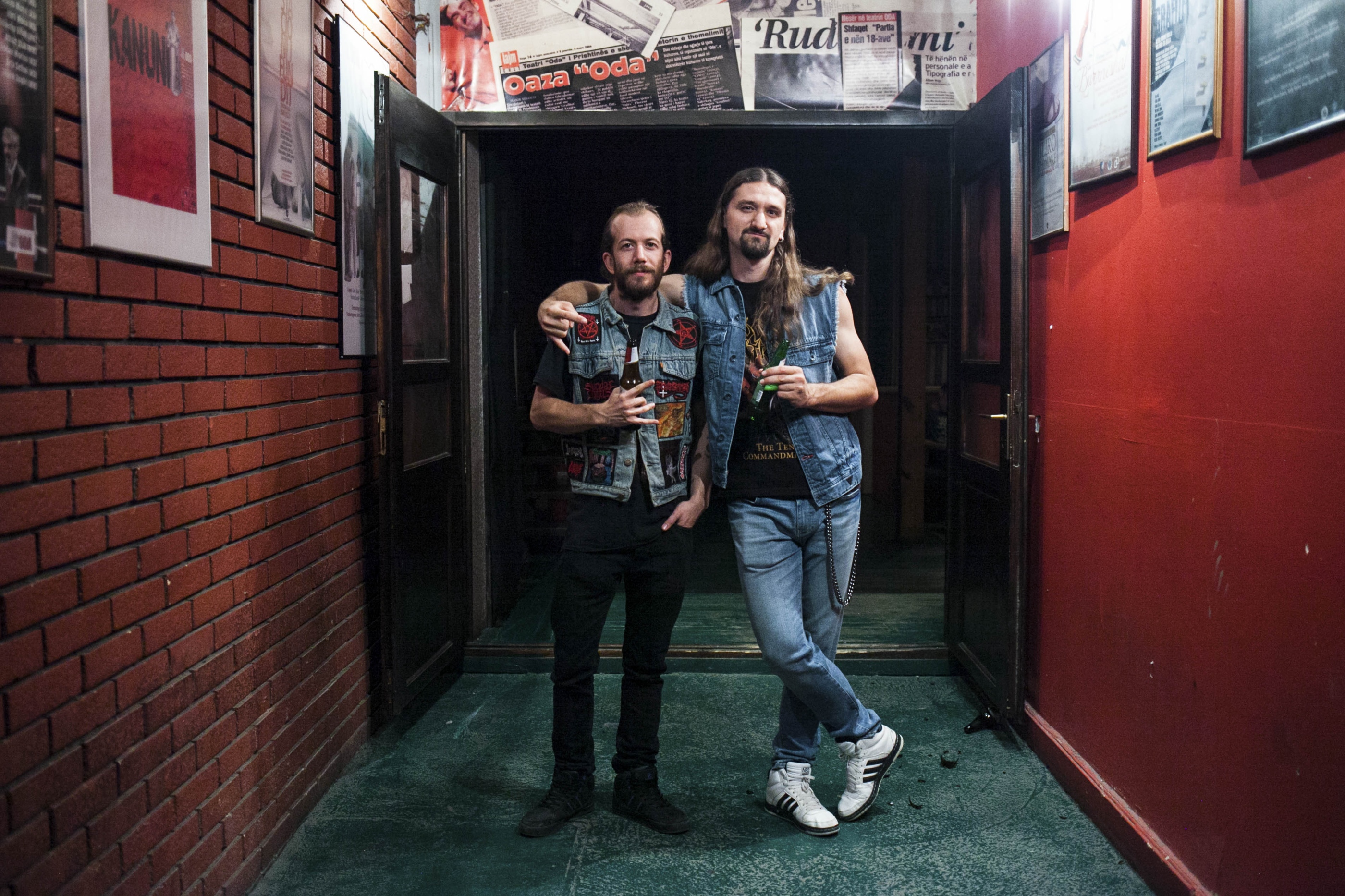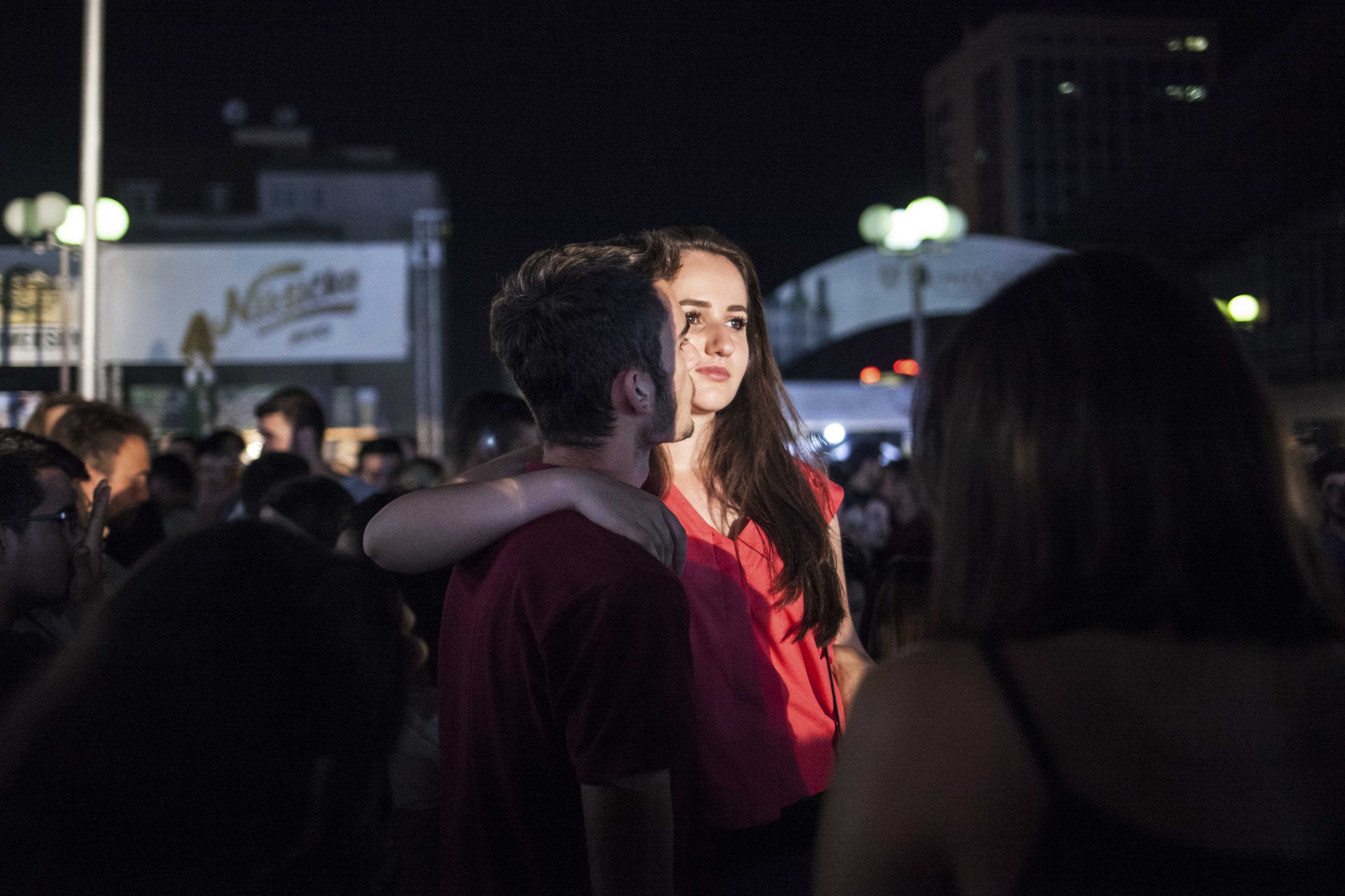KOSOVO: 51st STATE
"God bless America and our Western friends," used to say Ibrahim Rugova, the first president of Kosovo, at the end of his speeches during the war with Yugoslavia that took place from 28 February 1998 until 11 June 1999, and which ended victoriously for Kosovo thanks to the indispensable intervention of the United States, then presided over by Bill Clinton, and its NATO allies.
After 78 days of bombing key infrastructure in the Yugoslav republic of Serbia, Milosevic's troops were driven out of Kosovo, with the aim of aborting ethnic cleansing. These events marked a turning point in relations between Kosovo and the United States, leading to one of the closest bilateral relations internationally.
Rugova's phrase was then imprinted in the collective subconscious, being repeated incessantly, even to this day, as a manifestation of the sentiment that the Kosovar people have developed towards the United States ever since. A sentiment that is reflected in symbolic gestures such as the installation of a bronze statue of Bill Clinton in Pristina in 2009. His left arm is raised, while his right arm holds a folder bearing his name and the date on which NATO began bombing Yugoslavia: 24 March 1999.
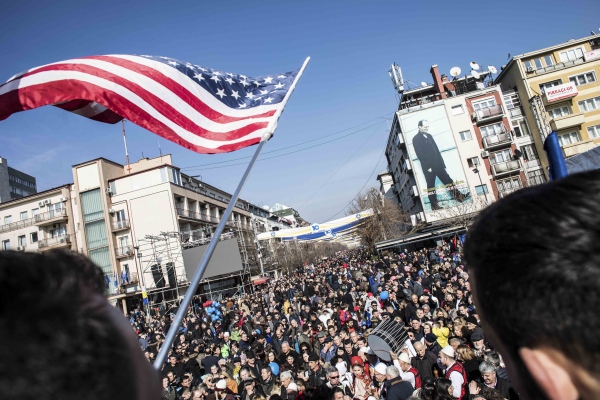
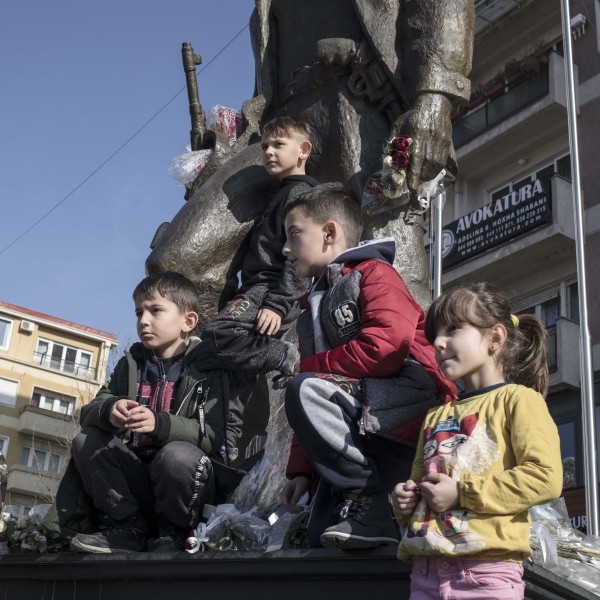
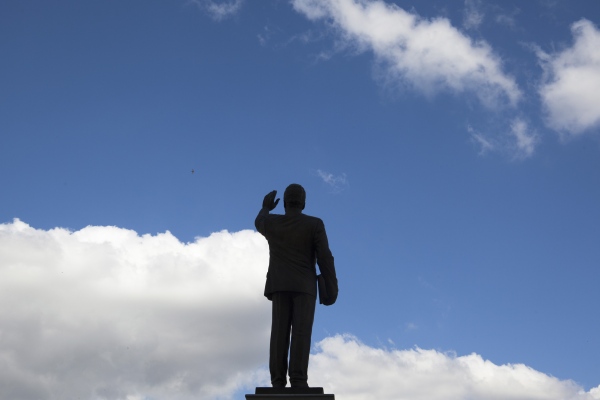
Clinton was present at the unveiling ceremony, where he showed a mixture of disbelief and gratitude in his words. "I never imagined that there would be a statue of me this big anywhere. This morning, when I talked to my wife, she told me that I should take a picture of myself in front of the statue and send it to her, to make sure it's true and that I didn't make it up," he said to a crowd that gathered in front of him on one of the city's main avenues, which also bears his name, Bulevardi Bill Klinton.
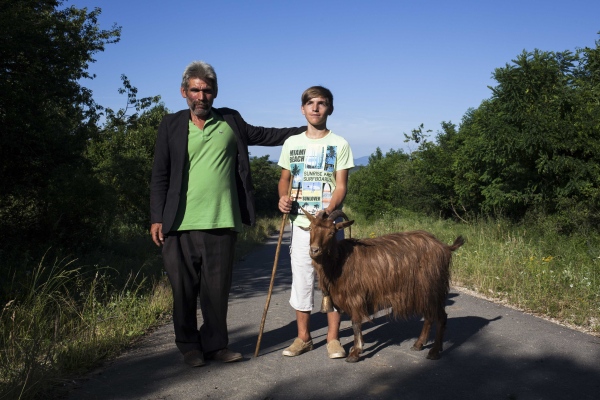
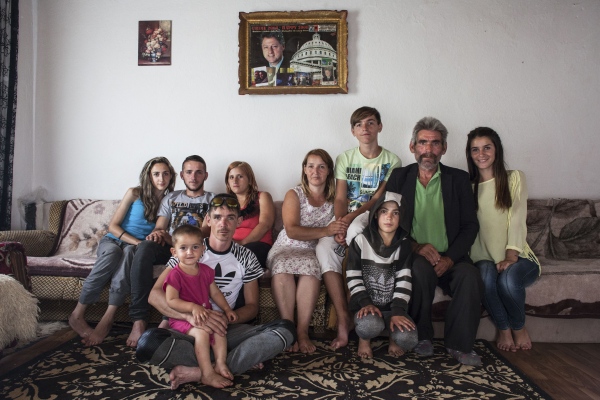
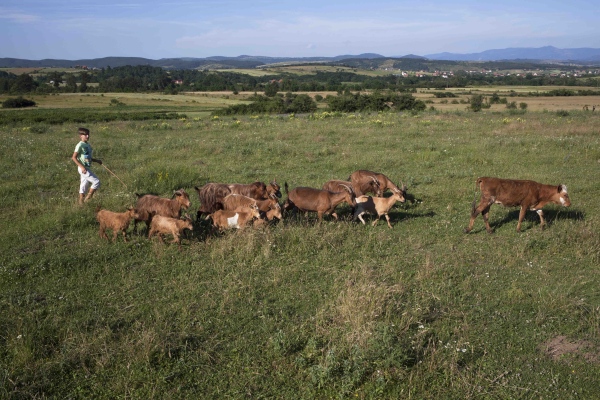
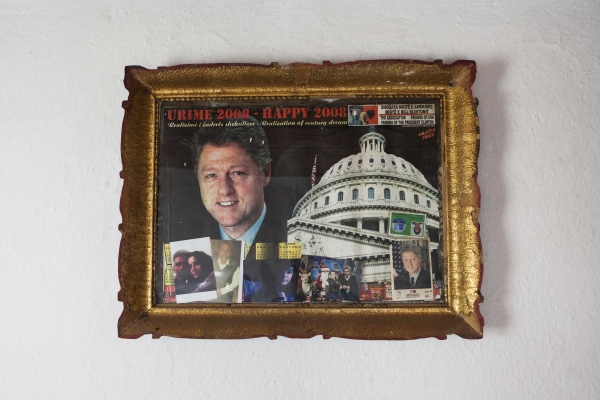
Klinton Bajgora (2004), is named after US President Bill Clinton, for whom his parents,
a family of shepherds in rural Kosovo, are deeply devoted because of the role the US played
in Kosovo during his presidency. Klinton was their first male child born after the war.
The initiative to install the statue came from the Friends of the US Association, "Shoqata Miqtë e Ameri" in Albanian, established in Pristina in 2004, whose purpose is "the preservation and promotion of permanent friendship between Kosovo and the US", as stated in its mission statement. Its president, Agim Rexhepi, in an interview, says they are looking to expand their activities to North Macedonia, Albania and Montenegro, as well as open an office in New York. "The United States of America is a symbol of Kosovo's statehood, they have contributed billions to the creation of our state and the establishment of institutions, they have invested in education, in the economy, in the creation of the FSK (Kosovo Security Forces). Many Kosovar citizens want us to be the 51st state of the United States of America," he stresses. In his office hangs on the wall two handwritten letters from Bill Clinton thanking him for his service, which Rexhepi proudly displays.
But this is not the only symbol in the country that shows this widespread sense of gratitude, nor is Bill Clinton the only beneficiary. Naming streets after US officials has become something of a tradition in Kosovo. Several schools, sports centres, streets and avenues across the country have been named after such personalities as Bill Clinton's Secretary of State Madeleine Albright, US Congressman Eliot Engel, former President George Bush, and even former prime ministers of NATO member states, with former UK Prime Minister Tony Blair being particularly beloved in the country.
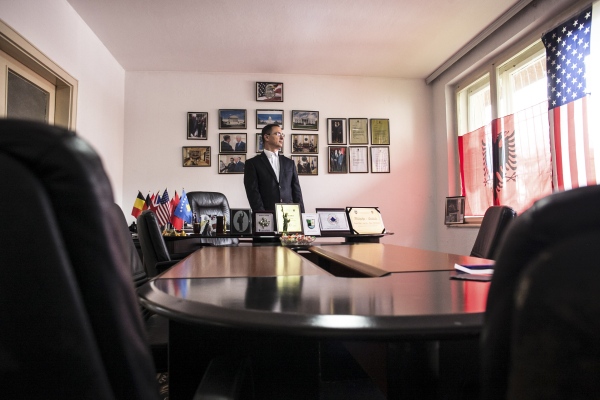
Agim Rexhepi, president of the Friends of America Association in Kosovo, "Shoqata Miqtë e Ameri" in Albanian, poses for a portrait in his office in Pristina. The association receives financial support from the United States for its maintenance.
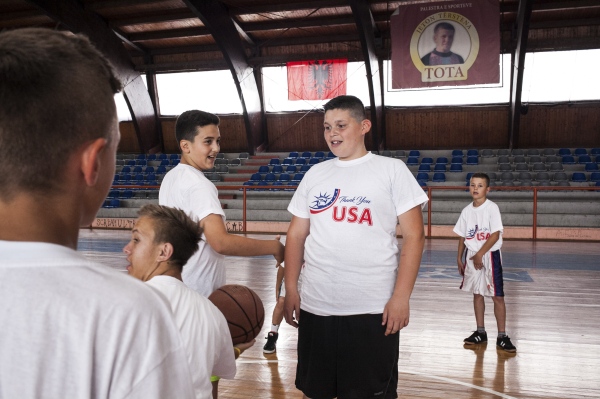
Children play basketball during a friendly tournament called "Thank you USA", which commemorates the 4th of July, USA Independence Day. It is an annual tournament organised by the Vushhtrii Basketball School.
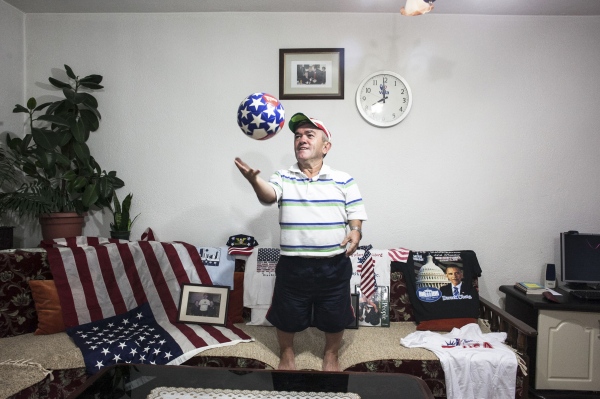
Agim Vatovci suffers from dwarfism, a condition that caused him many limitations for much of his life. At least until an American association with a presence in Kosovo that assists people with physical disabilities enabled him to take an active role in society.
Ruzhdi Kuçi, known as 'Amerikani', from the southern Kosovo town of Ferizaj, shows a strong fervour for the United States. His living room is decorated with American flags lining the walls. Above his television, portraits of various Kosovar Albanian national leaders, such as Ibrahim Rugova himself, are interspersed with portraits of Bill Clinton, George Bush or Abraham Lincoln, along with the words "Thank you", in Albanian "Faleminderit". There is probably no one in the United States who could hang a picture of Bill Clinton next to a picture of George Bush on their wall at home and feel admiration for both. For Ruzhdi, however, they are both Americans, and that is enough.
"Even though I don't speak English, I feel American. I can never have enough words of thanks for what America has done for us. If it weren't for them, none of us would be here today. God bless America," he stresses. His god is Allah, like that of 90% of Kosovar society, a Muslim-majority country. But this does not seem to be an impediment to an irredeemable dislike of Trump either, despite his anti-immigration policies that especially affected Muslim-majority countries, which never included Kosovo. "Despite everything, Trump is an American too, isn't he," he says when asked about it.
"Even though I don't speak English, I feel American. I can never have enough words of thanks for what America has done for us. If it weren't for them, none of us would be here today. God bless America," he stresses. His god is Allah, like that of 90% of Kosovar society, a Muslim-majority country. But this does not seem to be an impediment to an irredeemable dislike of Trump either, despite his anti-immigration policies that especially affected Muslim-majority countries, which never included Kosovo. "Despite everything, Trump is an American too, isn't he," he says when asked about it.
Successive US administrations, under Bill Clinton, George Bush, Barack Obama, Donald Trump and now Joe Biden, have been able to sustain the gratitude of Kosovar society, maintaining a protective role towards Kosovo, based on deep economic and political ties, but especially military ones, with the presence of US troops in the territory since 1999. They are part of the NATO peacekeeping mission still operating in the country today, which in the case of the United States translates into the presence of between 600 and 700 military personnel. The US military base at Bondsteel, a 360,000 square kilometre operations centre located south of Kosovo, was presented by the US government after its construction in June 1999 as the largest US military base abroad since the Vietnam War. At the time, more than 6,000 troops were stationed in the country.
Despite its declaration of independence on 17 February 2008, Kosovo remains a country under the tutelage of the international community and has not yet been recognised as an independent state by the UN, given the veto that Russia, Serbia's ally and defender of its interests in this organisation, has exercised on the occasions when this possibility has arisen. There are currently 117 countries that recognise Kosovo as an independent state.
Despite its declaration of independence on 17 February 2008, Kosovo remains a country under the tutelage of the international community and has not yet been recognised as an independent state by the UN, given the veto that Russia, Serbia's ally and defender of its interests in this organisation, has exercised on the occasions when this possibility has arisen. There are currently 117 countries that recognise Kosovo as an independent state.
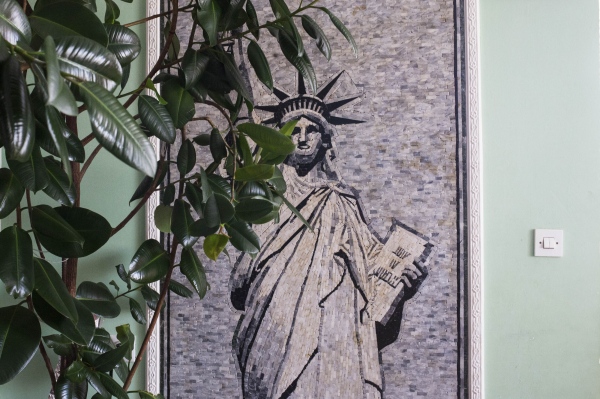
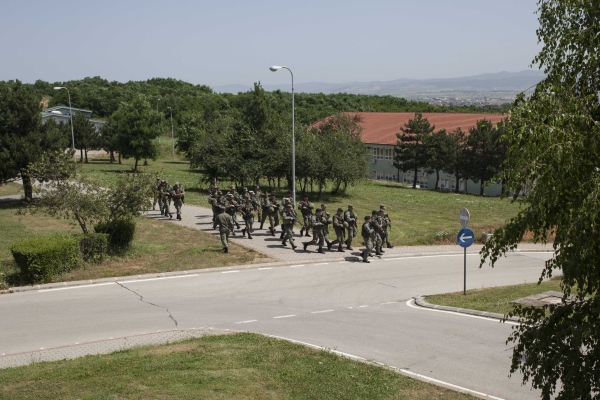
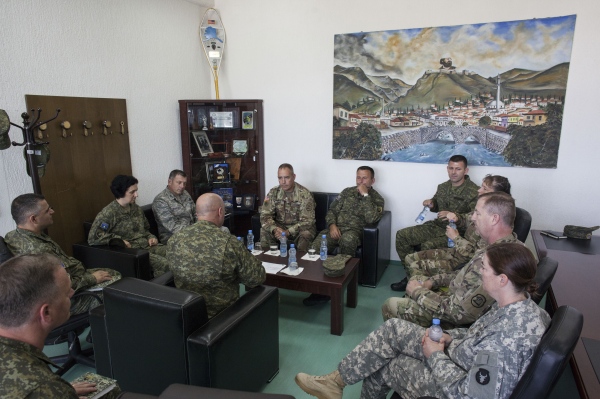
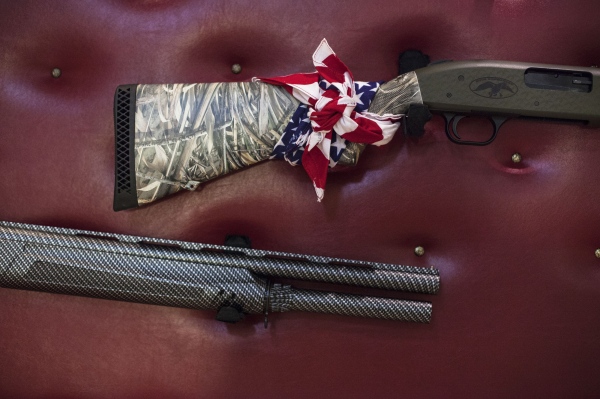
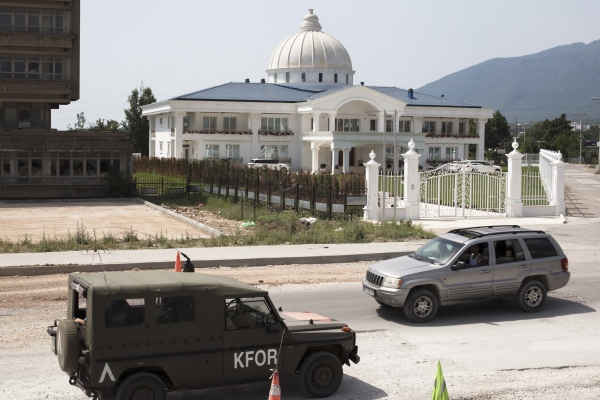
NATO's continued military presence in Kosovo is due to ongoing tensions with Serbia. The Cold War-era division of spheres of influence in the Balkans between the United States and the former Soviet Union, now Russia, is still present in relations between Kosovo and Serbia, which are practically non-existent, with each side backed by one of the international powers. Geostrategically, the Balkans occupy a privileged position in Europe, and this is reflected in these axes of power.
As long as these tensions remain, US protection of Kosovo will continue to be necessary, and consequently mutual dependence. And as long as there are no substantial changes in US policy towards Kosovo, the devotion to the United States that arose in this small European territory more than 20 years ago is likely to remain. And the American flag will continue to be raised every 4th of July in Pristina in commemoration of US Independence Day, another gesture that the Kosovar people offer as a proof of their devotion and gratitude.
As long as these tensions remain, US protection of Kosovo will continue to be necessary, and consequently mutual dependence. And as long as there are no substantial changes in US policy towards Kosovo, the devotion to the United States that arose in this small European territory more than 20 years ago is likely to remain. And the American flag will continue to be raised every 4th of July in Pristina in commemoration of US Independence Day, another gesture that the Kosovar people offer as a proof of their devotion and gratitude.
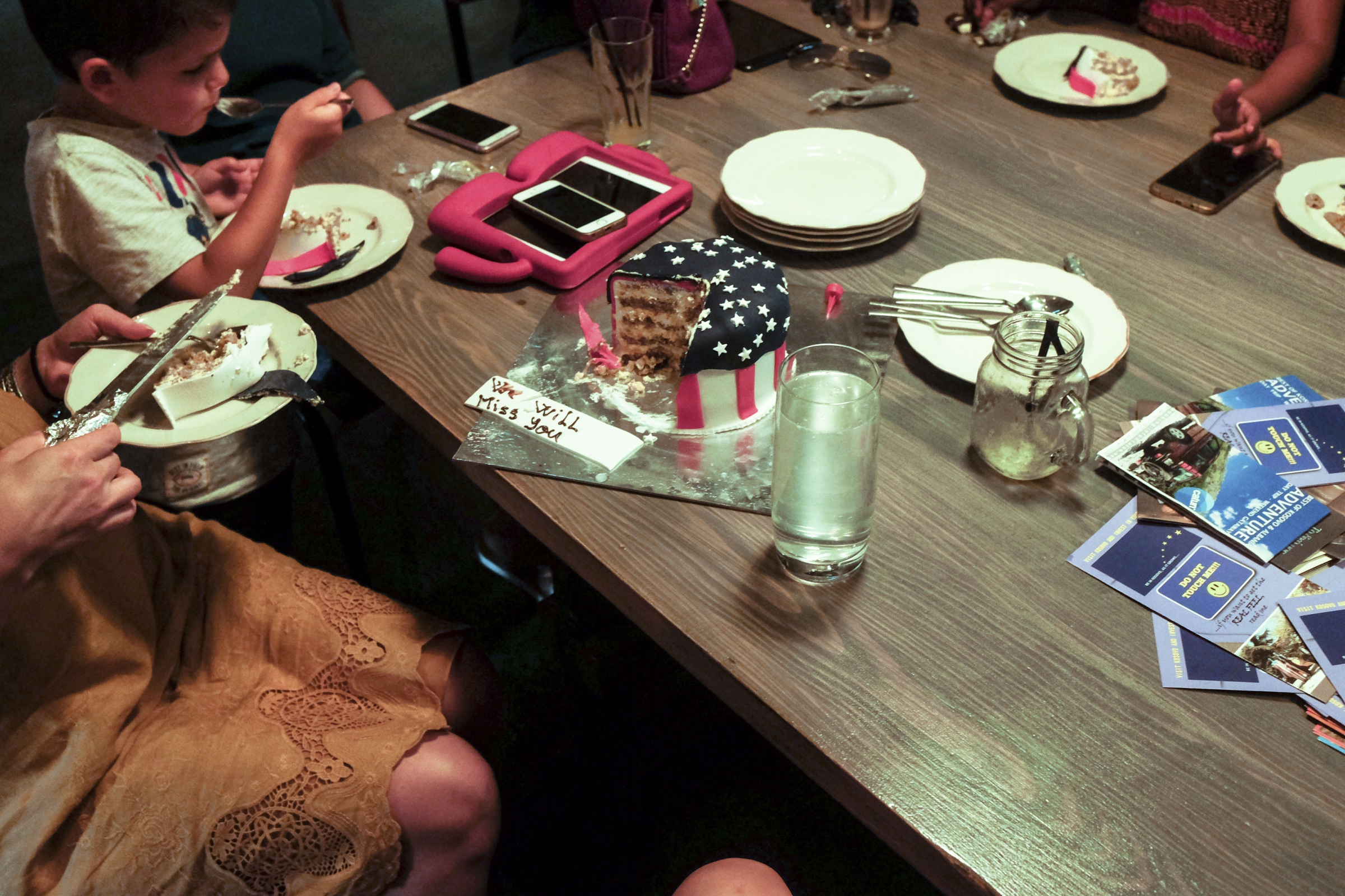
PUBLICATIONS
Time Magazine (USA)
National Geographic - Traveller (Italy)
El Pais (Spain)
The Guardian (UK)
Information (Denmark)
L´Obs (France)
Fluter Magazine (Germany)
Koha (Kosovo)
Esquire (Italy)
Süddeutsche Zeitung Magazine (Germany)
Ostpol Magazine (Germany)
Revista Lento (Uruguay)
National Geographic - Traveller (Italy)
El Pais (Spain)
The Guardian (UK)
Information (Denmark)
L´Obs (France)
Fluter Magazine (Germany)
Koha (Kosovo)
Esquire (Italy)
Süddeutsche Zeitung Magazine (Germany)
Ostpol Magazine (Germany)
Revista Lento (Uruguay)
EXHIBITIONS
2018. ‘Kosovo: Estado 51. Galería Nacional de Bosnia and Herzegovina. Sarajevo, BiH.
